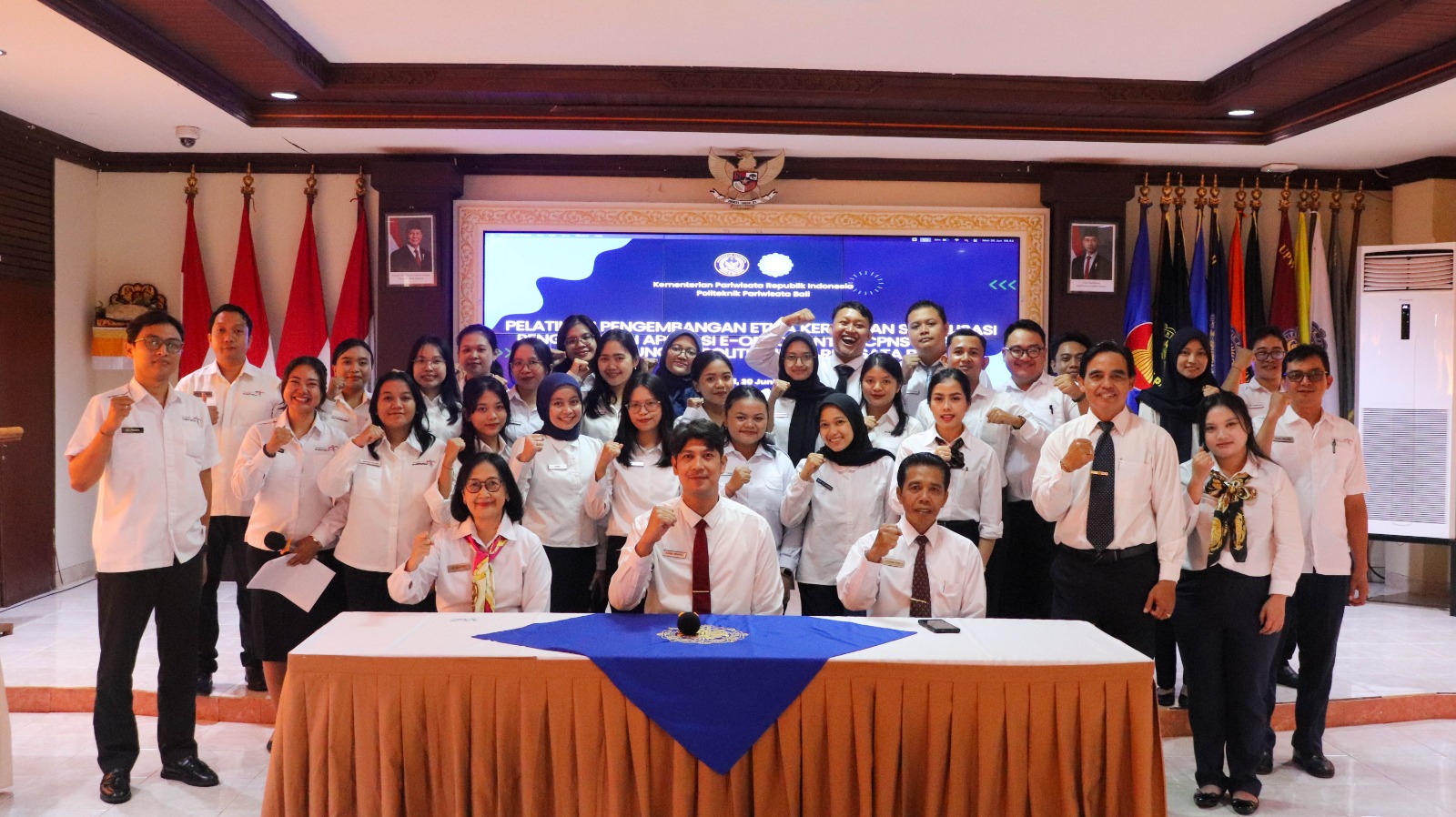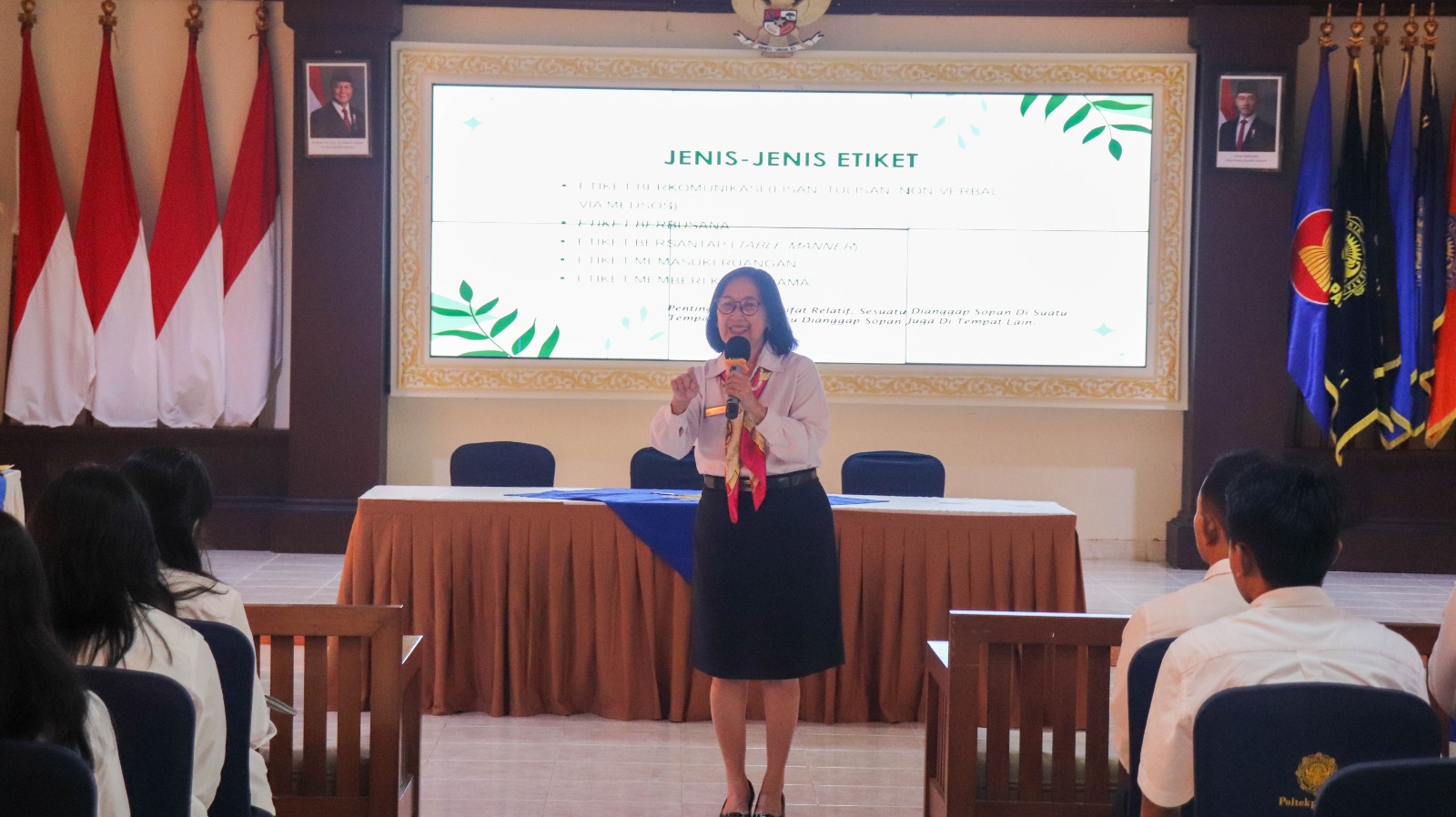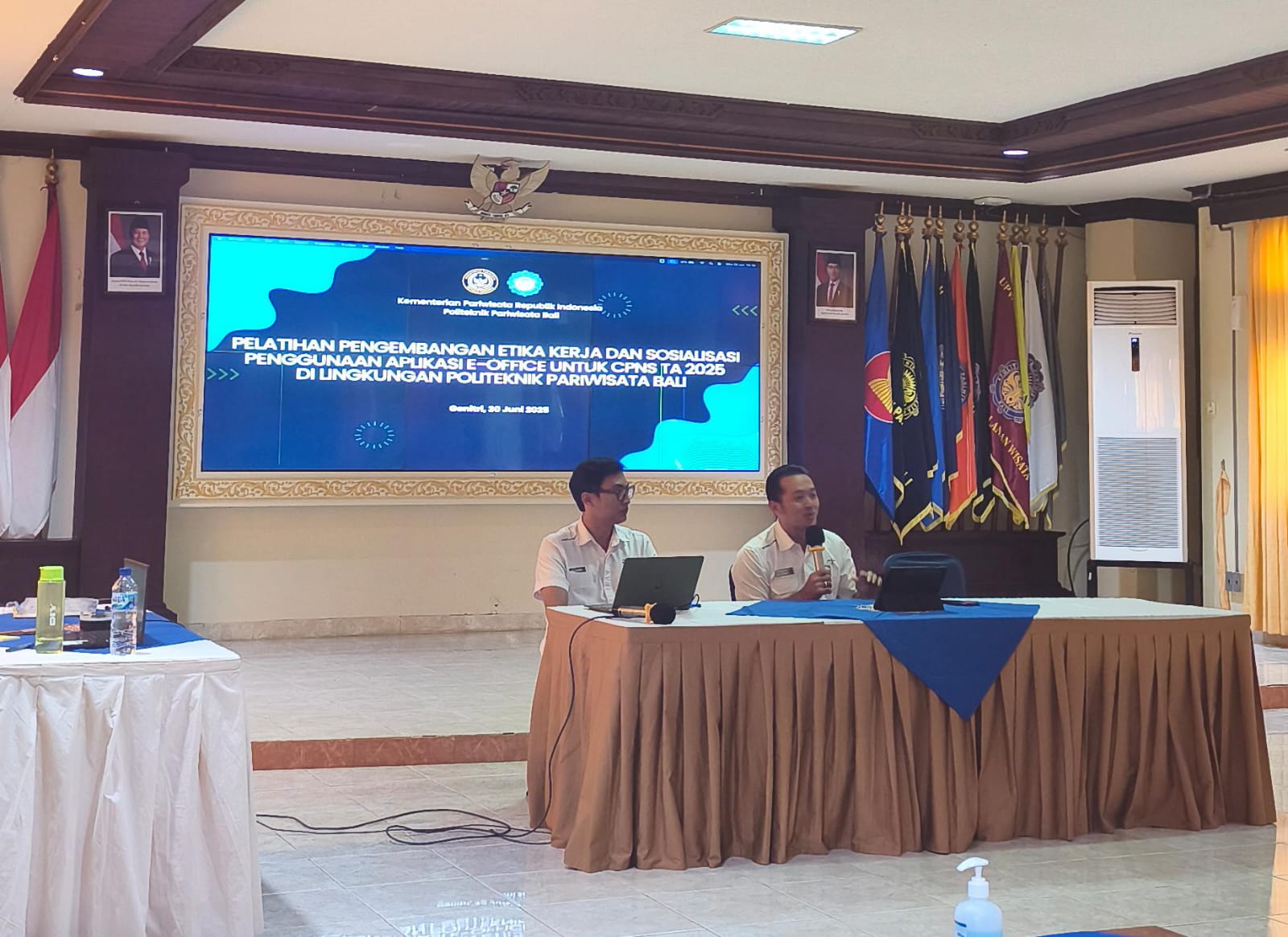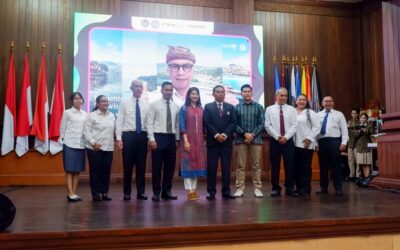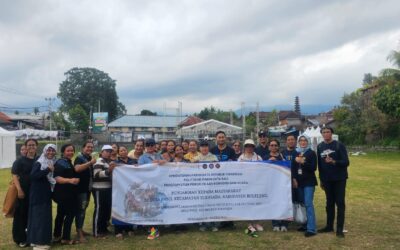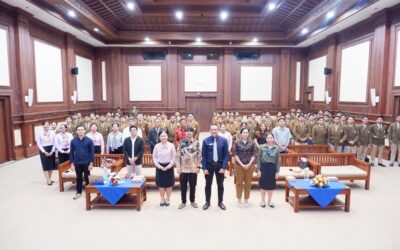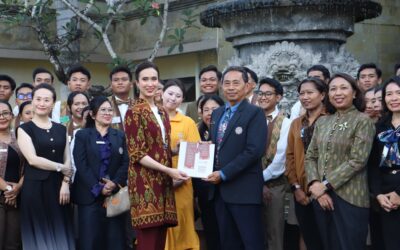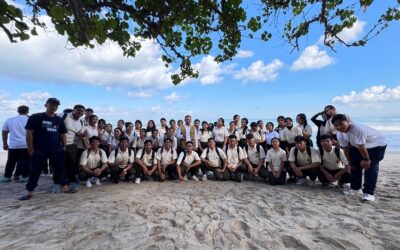Nusa Dua, June 30, 2025 – As a form of commitment to preparing competent, integrity-driven, and tech-savvy Civil Servant Candidates (CPNS), Bali Tourism Polytechnic organized a Training Program on the Development of Work Ethics and the Socialization of E-Office Application Usage for CPNS of the 2025 Fiscal Year. This activity took place in the Meeting Room of the Genitri Building, 1st Floor, and was attended by 25 newly recruited CPNS members within the Bali Tourism Polytechnic environment.
The training aimed to equip CPNS with both soft skills and hard skills essential for the performance of modern civil servants. On one hand, participants were encouraged to understand and apply professional work ethics and etiquette, while on the other hand, they were trained in utilizing the e-office application to enhance the efficiency of digital-based administrative work.
The event featured two experienced speakers: Dra. Ni Kade Juli Rastitiati, M.Hum, who delivered materials on civil servant work ethics and professional workplace culture, and I Gusti Agung Made Wirautama, S.Kom., M.Kom., who conducted technical training on the use of the e-office application adopted within Bali Tourism Polytechnic.
The training was designed using a mindful, meaningful, and joyful approach — creating a reflective, valuable, and enjoyable learning space. Participants were not only given theoretical material but also engaged in discussions and hands-on practice, fostering a deep and practical understanding of work values and supporting technologies.
More than just technical training, this activity also aligns with the implementation of the Sustainable Development Goals (SDGs), particularly SDG 4 (Quality Education) and SDG 16 (Peace, Justice, and Strong Institutions). By equipping CPNS with professional ethics and digital literacy from the beginning of their service, Bali Tourism Polytechnic contributes to building a professional, transparent, and competitive bureaucracy in the digital transformation era.
Through this training, CPNS are expected to begin shaping their character as civil servants who are not only administratively competent but also role models in workplace behavior and well-prepared to face the dynamic challenges of the professional world with strong core values.

